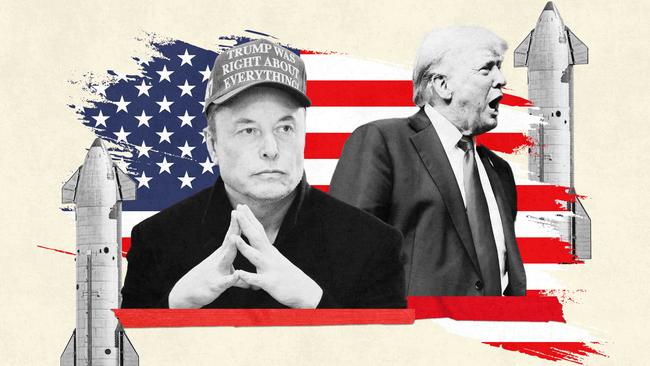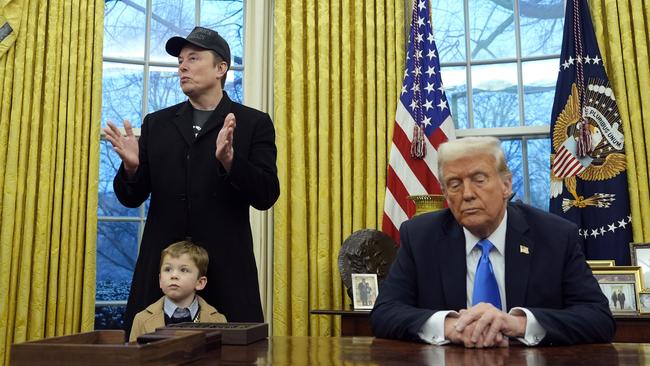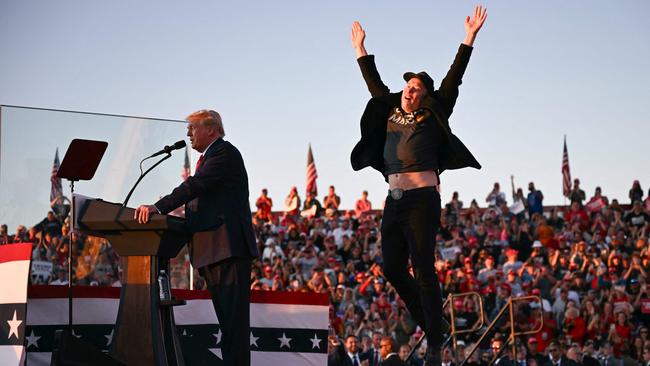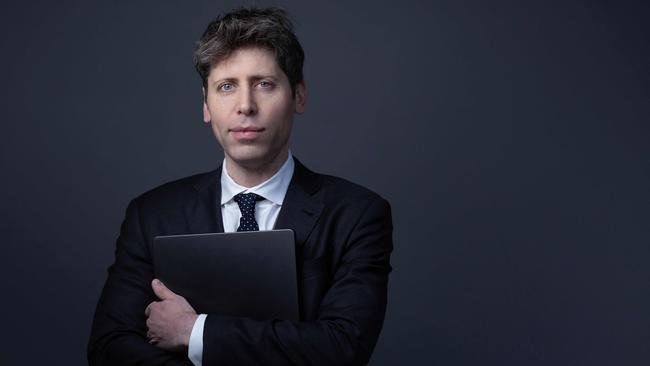
Some metaphors are just too tempting. As a brief, vivid encapsulation of the political career of the world’s richest man, the fate of his own Starship 9 test flight is hard to beat.
On Wednesday, 24 hours after the remains of the spacecraft splashed into the Indian Ocean, Musk announced on his X platform that he was leaving his position as the head of Doge, the Department of Government Efficiency, ending a turbulent stint as Donald Trump’s federal government cost-cutting supremo. “As my scheduled time as a Special Government Employee comes to an end, I would like to thank President @realDonaldTrump for the opportunity to reduce wasteful spending,” he wrote.
Musk’s stay in Washington was always intended to be brief, but his exit came in circumstances that made clear his disenchantment with the entire experience, the personal and political failure of an experiment that seems to have left him, if not a sadder, then surely a poorer and wiser man.
Last week Musk announced he would no longer spend money to support political candidates; this after he had invested a quarter of a billion dollars helping to get Trump elected. Earlier this week, CBS News released excerpts from an interview to be broadcast this weekend in which Musk offered withering criticism of Trump’s signature legislative achievement so far - the passing last week by the House of Representatives of his “big, beautiful bill”, a budget plan that cuts taxes by far more than it cuts spending, and would add $US3.9 trillion to America’s $US36 trillion in federal debt over the next decade.
“I think a bill can be big or it can be beautiful,” he said, in a concise summation of the philosophy that used to pass for conservative thinking on fiscal policy but which, along with much else, Trump Republicans have discarded. “I don’t know if it can be both.”

In a single legislative stroke the bill swamps the efforts of Doge to cut US spending and restore the country to the path of fiscal sanity. Musk had initially promised $2 trillion in savings, then revised that to $1 trillion. In the end his team claimed to have cut about $150 billion. Even that seems like an exaggeration. The total cut amounted to perhaps a little more than 1 per cent of America’s vast bureaucracy.
There were earlier signs of trouble: Musk had made it clear that he thought the centrepiece of the president’s international economic policy - the huge tariffs imposed on trading partners across the world (which a federal court ruled unlawful on Wednesday) - was a stupid idea, calling the White House economic adviser and the policy’s principal advocate Peter Navarro, “Peter Retarrdo”. And Musk, a near perfect model of the successful American immigrant story, also expressed reservations about too much immigration restriction.
As a businessman with a genius for risky investments that pay off spectacularly, Musk’s cold-eyed assessment of the returns on his expenditure of money, time and reputation in the past six months cannot make for happy reading.

The $250 million to help get Trump elected is pocket change in Musk’s world. But his failure to achieve what he set out to do at Doge is overwhelmed by the financial setback his time in Washington had on his businesses. His high-profile presence alongside Trump (and some of his forays into international politics) produced a backlash measured by demand for his Tesla cars. In Europe, sales have dropped by half from a year ago. Worldwide, including the US, sales fell by 13 per cent in the first quarter. The 50 per cent decline in Tesla’s stock price between November and April wiped out about a quarter of his personal net worth (though the stock has recovered some of that in the last month). Musk’s personal reputation has been similarly battered. Opinion polls show that well over half of Americans now disapprove of the man.
All this might have been worth it if, as was widely suspected, he could use his proximity to Trump to advance his own business interests. He may still do so. But in a telling postscript, The Wall Street Journal reported this week that Musk was recently rebuffed in his efforts to get Trump to include his own AI company in a deal the US signed with the United Arab Emirates for a vast data centre in the country. To Musk’s fury, the deal benefited his fierce rival and former colleague, Sam Altman of OpenAI.

Musk’s story can be seen as just another example of an unimaginably successful businessman who thought he could simply transfer his talents into government and repeat the formula. But the weird rules of politics - the primacy of qualitative over quantitative advantage, of form over substance, of sentiment and emotion over reason - often defeat them.
The more immediate and relevant lesson of the Musk episode may be a narrower one - when you do business with Trump there’s only one winner. And it’s not you.
Musk was valuable to Trump. The big campaign contributions were accompanied by threats from Musk to spend more of his fortune to defeat Trump’s political opponents if they dared oppose what he wanted. Doge was a fiscal non-event but a political boon. High-profile spending cuts in unpopular areas such as overseas aid and woke projects in government agencies amounted to little in economic terms but were politically precious.
“Doge is just becoming the whipping boy for everything,” Musk told The Washington Post this week. In the end, even Musk’s pariah status was good for Trump.
The Times




Elon Musk’s latest SpaceX rocket was launched this week to great fanfare, lit up the landscape on lift-off, showed breakthrough potential for a while but eventually flamed out and crashed to earth in an expensive shower of debris.